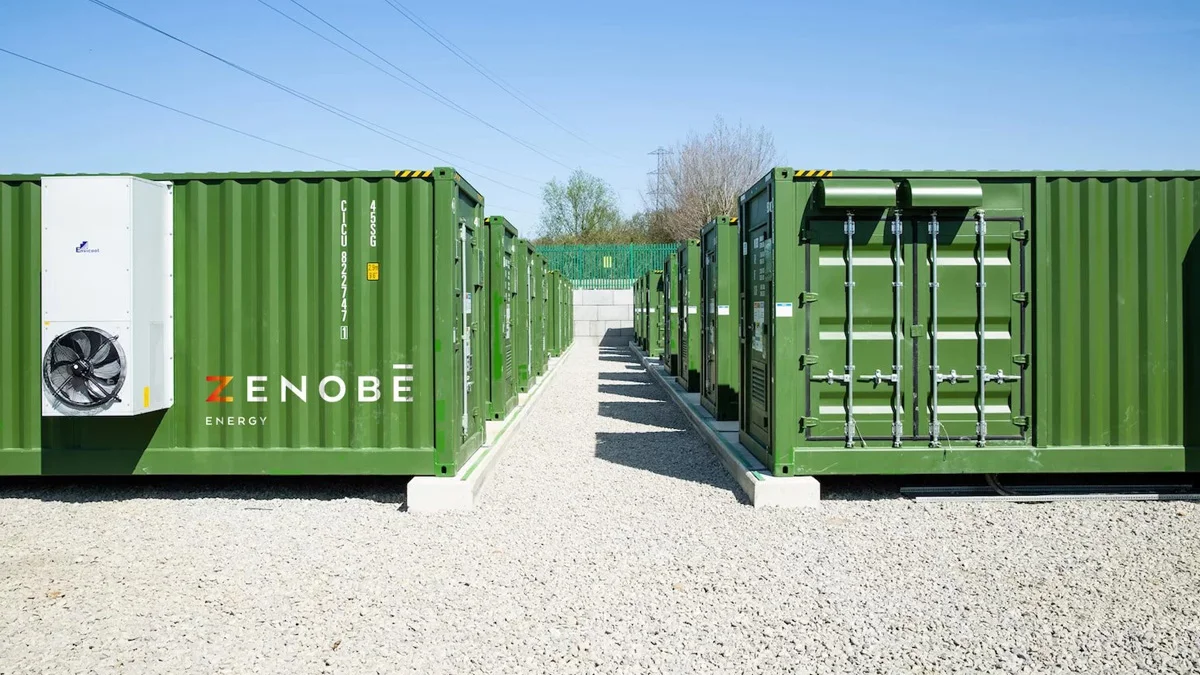
When James Basden talks about Zenobe, he doesn’t sound like a man content with merely building a successful company. Instead, he sounds like someone intent on rewriting the infrastructure of the modern world.
“We have a unique opportunity,” he says, “to set up a carbon-free electricity, power network and transport system that our children and grandchildren will benefit from. Once we put the capital infrastructure in, the marginal cost of delivery is very, very low because we don’t pay for the wind and we don’t pay for the sun.”
It’s a grand vision, but one that’s taking shape at breathtaking speed. Founded in 2017, Zenobe has raised more than £2bn in equity and debt to accelerate the shift to clean energy. What began as an idea to help balance the UK’s increasingly renewable power grid has evolved into a business that also powers fleets of electric buses across the world, from Glasgow to Sydney. “Doing things on a small scale doesn’t move the needle,” Basden insists. “We’ve got to get this to scale, and fast.”
The company’s story is one of adaptation as much as ambition. Zenobe first entered the market providing frequency-balancing batteries for the National Grid, but the market quickly became saturated. The turning point came when Basden received an unlikely call from the founders of Stagecoach, who were struggling to electrify a bus depot in Guildford.
Connecting it to the grid was going to take years and millions of pounds. Zenobe proposed a cheaper, faster fix: install a battery on-site to manage power demand. The experiment worked and a new business model was born. “For some of our customers,” Basden says, “all they have to do is provide a driver in the depot and we do everything else.”

Today Zenobe is the largest owner and operator of electric bus fleets in the UK, Australia and New Zealand, with projects expanding into Europe and North America. In Sydney, its Leichhardt depot powers 55 electric buses with rooftop solar and on-site storage.
Across the Atlantic, the company is targeting America’s 600,000-strong fleet of yellow school buses, working with parent networks concerned about the fumes children breathe every day. “You’ve got to listen locally,” Basden says of Zenobe’s U.S. push. “There’s nothing worse than a Brit coming over and saying, ‘Hi, I’m here to help.’”
Back home, Zenobe’s grid-scale batteries are quietly transforming how electricity is delivered. Its site at Blackhillock in Scotland, at 200 megawatts, the largest in Europe, provides “stability services”, mimicking the inertia once produced by spinning turbines and keeping the grid steady as fossil fuels fade.
“You should think of these as flexibility power stations,” Basden explains. “The scale of what we’re doing will make an enormous difference to people’s electricity bills.”
Scaling a company like Zenobe takes both capital and conviction. Rather than chase venture funding, Basden partnered with infrastructure-minded investors, such as Tiger Infrastructure and Infracapital, who shared his long-term view. Their backing, along with guidance from former National Grid chief Steve Holliday as chair, has helped Zenobe balance its entrepreneurial energy with the discipline of an infrastructure operator.
After years of scrapping for payroll in the early days, Basden’s focus is now on maturity without losing edge. “We’ve made plenty of mistakes,” he admits. “But the key is learning and adapting. Some of the things we’re doing have never been done before.”
For him, the mission remains deeply personal. Zenobe isn’t just about technology or profit; it’s about building the next chapter of industrial history. “The Victorians gave us railways and sewers,” he says. “Our generation’s job is to build a carbon-free network that lasts a century. That’s something worth getting right.”
Related and recommended

Sponsored content: As generative AI use surges, organisations must manage copyright and data risks through clear policies, licensing and responsible content use

Artificial intelligence can reconfigure and connect existing knowledge, but it can’t create something new on its own - that’s for people

Oliver Kent-Braham, one of the twins behind the fintech unicorn Marshmallow, applied his early success in tennis to building one of the UK’s fastest-growing companies

From Premier League glory to blockbuster boxing, these companies have all posted knockout growth over the past three years

